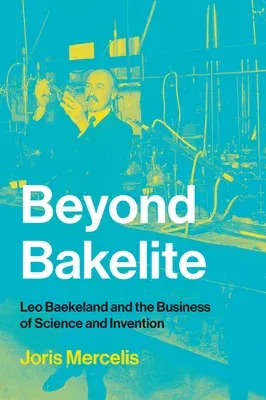The changing relationships between science and industry in the late
nineteenth and early twentieth centuries, illustrated by the career of
the "father of plastics."
The Belgian-born American chemist, inventor, and entrepreneur Leo
Baekeland (1863-1944) is best known for his invention of the first
synthetic plastic--his near-namesake Bakelite--which had applications
ranging from electrical insulators to Art Deco jewelry. Toward the end
of his career, Baekeland was called the "father of plastics"--given
credit for the establishment of a sector to which many other
researchers, inventors, and firms inside and outside the United States
had also made significant contributions. In Beyond Bakelite, Joris
Mercelis examines Baekeland's career, using it as a lens through which
to view the changing relationships between science and industry on both
sides of the Atlantic in the late nineteenth and early twentieth
centuries. He gives special attention to the intellectual property
strategies and scientific entrepreneurship of the period, making clear
their relevance to contemporary concerns.
Mercelis describes the growth of what he terms the "science-industry
nexus" and the developing interdependence of science and industry. After
examining Baekeland's emergence as a pragmatic innovator and leader in
scientific circles, Mercelis analyzes Baekeland's international and
domestic IP strategies and his efforts to reform the US patent system;
his dual roles as scientist and industrialist; the importance of
theoretical knowledge to the science-industry nexus; and the American
Bakelite companies' research and development practices, technically
oriented sales approach, and remuneration schemes. Mercelis argues that
the expansion and transformation of the science-industry nexus shaped
the careers and legacies of Baekeland and many of his contemporaries.

